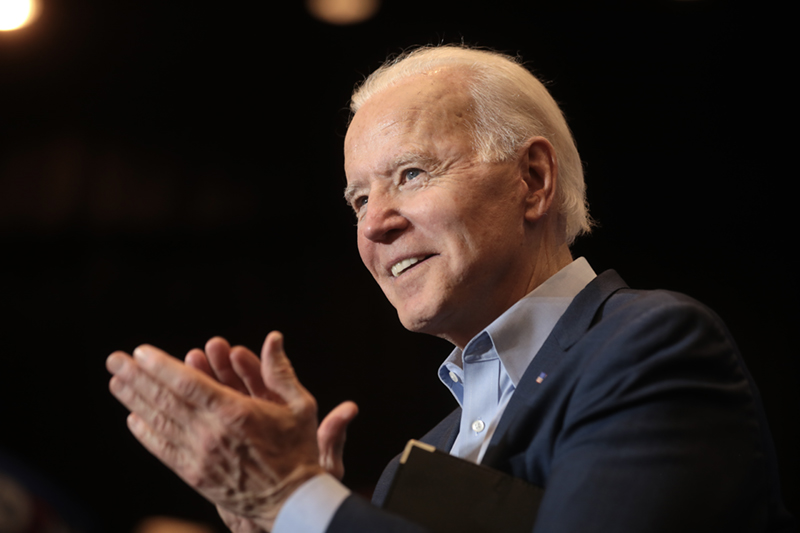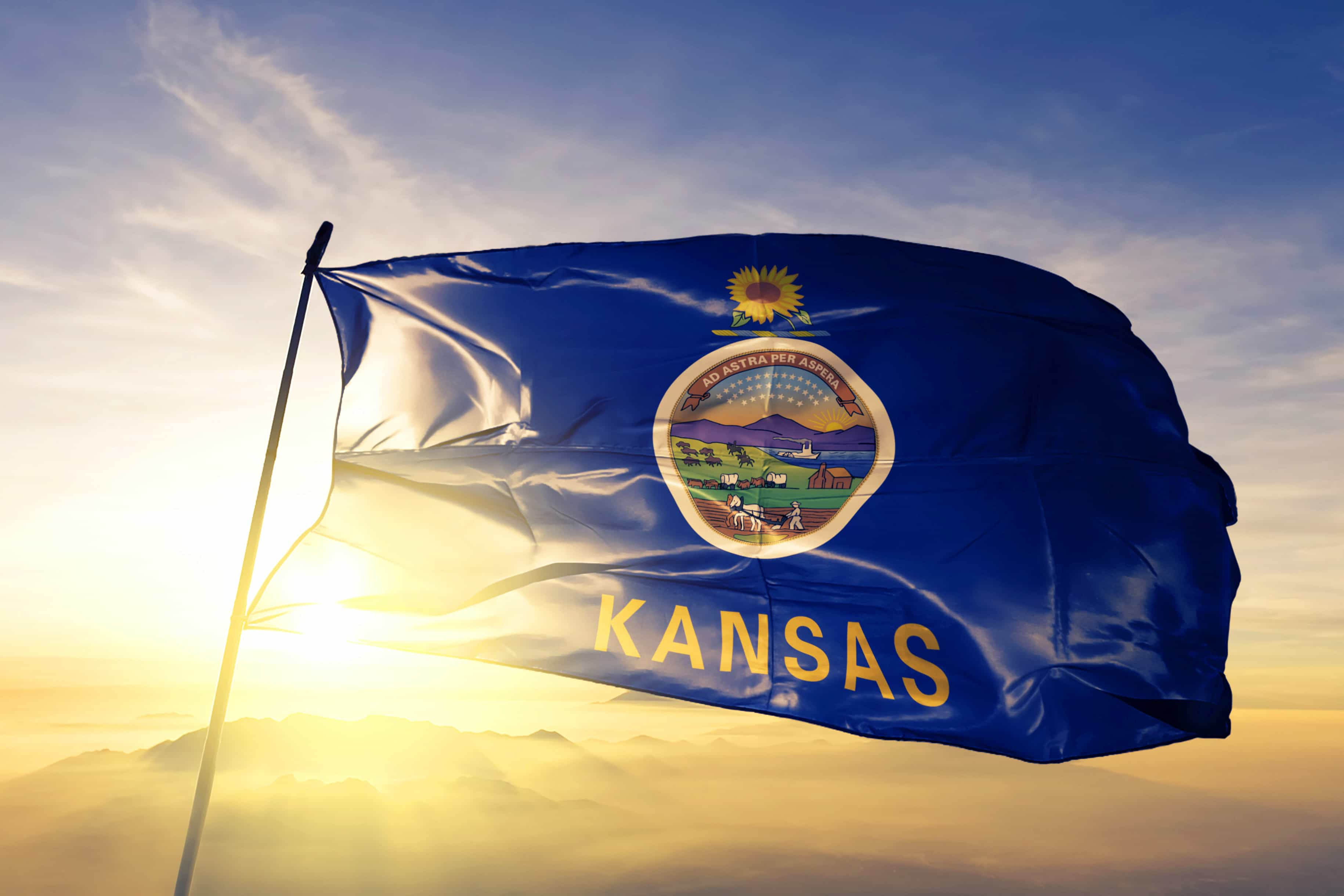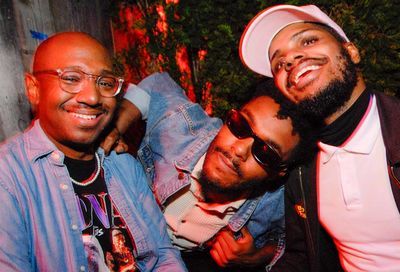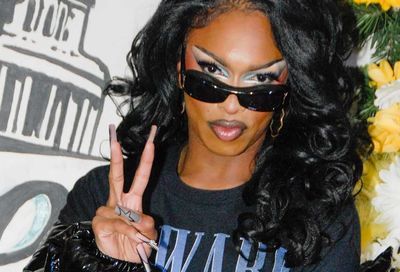Trumping the Competition
Donald Trump is keeping the GOP contest lively and interesting

Donald Trump is on a roll, at least when it comes to his performance in polls and his ability to keep the media spotlight on his candidacy.
The billionaire business mogul and former reality TV star surged to the front of the pack for the Republican nomination for the presidency almost as soon as he announced his campaign. And the political press have been seemingly unable to comprehend his meteoric rise in spite of controversial statements he’s made along the campaign trail. But those who dismiss Trump as merely a sideshow act are missing a larger point about the voters who currently say they’re supporting Trump.
Trump’s most inflammatory comments came during his announcement, when he disparaged illegal immigrants, saying, “When Mexico sends its people, they’re not sending the best. They’re not sending you, they’re sending people that have lots of problems and they’re bringing those problems. They’re bringing drugs, they’re bringing crime. They’re rapists.”
But despite some backlash from non-Republicans, including corporations and Latino groups, Trump largely emerged from the controversy unscathed. And no wonder: according to a recent CNN/ORC International poll, a majority of Republican voters support not only taking measures to stem the flow of illegal immigrants into the United States, but deporting those who are already living here without documentation.
While some have quibbled that the CNN poll appears to overstate Republican opposition to immigration, a Washington Post/ABC News poll that asked whether undocumented immigrants should be allowed to remain in the country if they pay a fine and meet other requirements still found a majority of Republicans favoring deportation. Meanwhile, 60 percent of Americans in general favored legalization for those already living in the United States. In either case, Trump’s rhetoric, while blunt and sometimes controversial, is resonating with a certain segment of the Republican primary electorate.
The CNN/ORC poll points to who might be supporting Trump: disaffected and frustrated conservative voters who feel that the government doesn’t represent their views. According to the poll, only 30 percent of registered voters feel the government in Washington represents their views “very” or “somewhat” well. That number falls to 16 percent among registered Republicans. According to the CNN poll, Republican voters who say their views are not represented at all by the government are far more likely to back a Trump candidacy, with 24 percent supporting him versus 13 percent for the next highest contender, former Florida Gov. Jeb Bush.
Media attention has been focused on Trump from the time he announced, and he’s been attracting fairly large crowds to his campaign rallies. Trump has also been unafraid to take on establishment figures within the party, such as 2008 Republican nominee Sen. John McCain, who disparaged McCain’s status as a hero during the Vietnam War.
“He’s a war hero because he was captured,” Trump scoffed. “I like people that weren’t captured.”
Many in the media speculated that Trump would experience a decrease in the polls for making comments that were insensitive not only to McCain but other veterans and prisoners of war, but the decline has yet to materialize. Trump actually shows a 6-point increase from a similar poll in June. And according to two NBC/Marist polls of Iowa and New Hampshire, Trump has improved his standing in both states. In Iowa, he comes in a close second among likely caucus-goers with 17 percent, to Walker’s 19 percent. And Trump leads among New Hampshire Republicans with 21 percent of the vote, compared to Bush’s 14 percent and Walker’s 12 percent.
Professional commentators, pundits and media figures seem stunned and befuddled by Trump’s staying power.
“He’s not even doing that well, in the sense that he’s not performing that well,” said political analyst Mark Halperin during a Monday appearance on MSNBC’s Morning Joe. “He’s clearly making some mistakes that, to some extent, are setting him back. He’s not organizing in Iowa as intensely as he might. And yet, as long as he’s at the top of the polls, as long as Republicans fail to identify why it is he’s doing well, rather than just railing against him, he’s going to be a huge factor in this race.”
That’s not to say that Trump doesn’t have his own political problems. According to the NBC/Marist poll, Donald Trump does worst among all presidential candidates — Democratic and Republican — with a net approval rating of -28 in Iowa, where only 32 percent of registered voters have a favorable opinion of him, compared to 60 percent who have an unfavorable opinion. Similarly, in New Hampshire, Trump has a net approval rating of -40, with only 27 percent of registered voters thinking of him favorably and 67 percent viewing him unfavorably. But Halperin also pointed out that, given the wide field of candidates running for the GOP nomination — 17 major candidates in total — Trump doesn’t have to be popular across the board.
“In a crowded Republican field, somebody can win a contest with 18 percent of the vote. That’s why people are underestimating Trump,” Halperin said. “If they think a lot of people don’t like him, he doesn’t need everybody to like him to win.”
Geoffrey Skelley, media relations coordinator and associate editor of Sabato’s Crystal Ball at the University of Virginia Center for Politics, says Trump’s celebrity status and the amount of attention lavished on his campaign make it difficult to compare the race for the 2016 Republican nomination to previous fights in 2008 or 2012, as Trump is sucking up all the oxygen in the primary.
“He’s gotten much more intense media coverage, even after announcing his presidential bid, than most people do,” say Skelley. “Usually, they announce, get a lot of coverage, and drop off. Trump hasn’t seen that drop-off. He’s in the news constantly. And if he’s the only one that people are talking about, that keeps other candidates’ names from popping up.”
Trump appears to be attracting voters from the conservative wing of the party, as opposed to moderates, social conservatives, or libertarians. Says Skelly, “Trump’s support is kind of broad, in terms of where it’s coming from, ideologically speaking. But if you look in terms of approval among Republicans, it’s not actually good, it’s worse than the other candidates, except maybe Chris Christie. So his support isn’t actually that broad, but it looks that way, because it’s coming from all over the place in the party.”
Trump has previously held positions that are generally anathema to Republican primary voters. As a result, many of the leading candidates will aim their attacks at Trump during the first presidential debate, which may cause Trump’s numbers to fall as Republican primary voters find someone else to back that meets criteria for an ideal candidate.
As far as LGBT issues go, Trump’s views on same-sex marriage are largely indistinguishable from those of his 16 primary opponents. As far back as 2011, in an interview with FOX News’ Bill O’Reilly, Trump implied he felt uncomfortable with gay marriage, saying that it just didn’t feel “good” or “right.”
Former Star Trek actor George Takei met with Trump in 2013 to discuss same-sex marriage, telling MSNBC’s Lawrence O’Donnell that they “agreed to disagree” on the issue. But Takei also said that, during that lunch meeting, Trump had told him he had recently attended the wedding of Jordan Roth, the president and owner of Broadway’s Jujamcyn Theaters.
So far, Trump has largely shied away from social issues, even when pressed by CNN’s Jake Tapper to give a response to a hypothetical gay and lesbian person who would criticize Trump for opposing gay marriage while being married three separate times. Trump simply reiterated his support for “traditional marriage” without elaborating on his position.
But Trump has also not appeared to be explicitly courting voters from the socially conservative wing of the party. Several other candidates, such as Texas Sen. Ted Cruz, Louisiana Gov. Bobby Jindal, former Pennsylvania Sen. Rick Santorum, and former Arkansas Gov. Mike Huckabee, are expected to make a play for the evangelical voters who often make up a substantial portion of caucus-goers in the key state of Iowa. And with the exception of Walker, who is more known for his union-busting tactics in Wisconsin, those candidates have largely crafted their respective public images as social issues crusaders. So it stands to reason that Trump would seek out another bloc of voters within the party where he has less competition and can grab a larger share of votes.
Gregory T. Angelo, executive director of Log Cabin Republicans, says that it is far too early to predict voter behavior in the upcoming presidential primary process.
“It’s important to point out that we haven’t had the first presidential debate in either party,” Angelo says. “And if you were talking to me at this time back in the 2008 election cycle, everybody would be talking about the inevitable matchup between Rudy Giuliani and Hillary Clinton.
“If the 2012 election cycle taught us anything, it’s that the full array of candidates in either party have their peaks and their valleys and their surges,” Angelo says. “It’s way too early at this stage of the game to predict who’s going to come out on top in the GOP field. I think it’s also unfair to say that people are consolidating or coalescing around specific candidates. I think a lot of people are waiting to see how the candidates they’re watching perform in the debates, myself included.
Support Metro Weekly’s Journalism
These are challenging times for news organizations. And yet it’s crucial we stay active and provide vital resources and information to both our local readers and the world. So won’t you please take a moment and consider supporting Metro Weekly with a membership? For as little as $5 a month, you can help ensure Metro Weekly magazine and MetroWeekly.com remain free, viable resources as we provide the best, most diverse, culturally-resonant LGBTQ coverage in both the D.C. region and around the world. Memberships come with exclusive perks and discounts, your own personal digital delivery of each week’s magazine (and an archive), access to our Member's Lounge when it launches this fall, and exclusive members-only items like Metro Weekly Membership Mugs and Tote Bags! Check out all our membership levels here and please join us today!






















